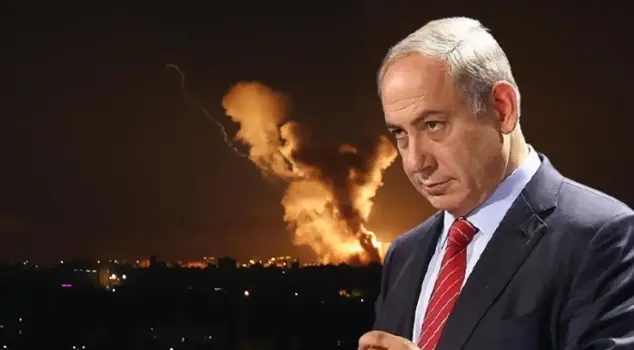In a landmark development on November 26, 2024, the Israeli Cabinet voted to approve a ceasefire deal with Lebanon, signaling a significant de-escalation in the conflict that has ravaged Lebanon and northern Israel for over a year. Israeli Prime Minister Benjamin Netanyahu had earlier recommended the deal, which aims to bring a permanent cessation of hostilities between Israel and the Lebanese militant group Hezbollah. The ceasefire is set to take effect at 4 a.m. local time on November 27, 2024, following months of intense negotiations, with U.S. President Joe Biden playing a key role in brokering the agreement.
Terms of the Ceasefire Deal: A Strategic Withdrawal
The terms of the ceasefire deal were outlined in a meeting between Israeli and Lebanese officials, with the United States serving as the mediator. Under the agreement, Israeli forces will withdraw from southern Lebanon over a 60-day period, marking a major shift in Israel’s military strategy in the region. Hezbollah, Iran’s most significant proxy in the region, is also required to withdraw north of the Litani River, a strategically important waterway in Lebanon. Additionally, approximately 5,000 Lebanese army troops will be deployed to the south, although the Lebanese military is not officially considered a party to the conflict.
Israel’s Stance: Self-Defense and Security Concerns
Israel’s commitment to the ceasefire comes with a clear caveat: the country “reserves its right to act against any threat to its security,” according to a statement from Netanyahu’s office. The Israeli government has made it clear that any violation of the ceasefire by Hezbollah would be met with force. Netanyahu, in a televised address, stated that the primary goals of the ceasefire were to allow Israel to focus on the Iranian threat, complete the elimination of Hamas, and facilitate the safe return of displaced residents in northern Israel.
“The ceasefire allows us to focus on the Iranian threat,” Netanyahu emphasized, asserting that Hezbollah’s withdrawal would help isolate Hamas in Gaza. Netanyahu also reiterated Israel’s resolve to ensure the return of displaced residents in northern Israel, some of whom have been living in temporary shelters due to the ongoing conflict.
International Reactions: U.S. Support and Criticism at Home
The deal has been welcomed internationally, with U.S. President Joe Biden praising the breakthrough as a crucial step toward ending the devastating conflict between Israel and Hezbollah. U.S. Ambassador to the U.N. Lisa Johnson played a key role in submitting the proposal to Lebanon’s Parliament speaker, Nabih Berri, facilitating the diplomatic breakthrough.
However, the deal has faced criticism from hardline elements within Israel, including far-right members of Netanyahu’s coalition. National Security Minister Itamar Ben Gvir referred to the ceasefire as a “historic mistake,” accusing the government of failing to achieve the war’s main objective: the safe return of displaced Israelis. Some mayors in northern Israel also expressed outrage, calling the deal a “surrender agreement.”
Humanitarian Impact: A Divided Response
While the ceasefire deal brings a glimmer of hope for the people of Lebanon and northern Israel, the humanitarian situation remains dire. Over 3,500 people have been killed in Lebanon, with an estimated 1.2 million displaced by the conflict. The war has also claimed at least 44,249 lives in Gaza, further adding to the urgency of finding a broader resolution.
The ceasefire deal, however, is limited to Lebanon and does not address the ongoing war in Gaza or the situation of the hostages held by Hamas. Families of the hostages have urged that any agreement should also include provisions for their safe release, emphasizing that the northern front and the hostages’ fate are inextricably linked.
The Road Ahead: Will the Ceasefire Lead to Lasting Peace?
As the ceasefire deal begins to take effect, the international community is watching closely to see whether it will lead to lasting peace in the region. While the terms of the agreement have the potential to bring stability to Lebanon, the broader Middle East conflict remains unresolved. The question that looms large is: Will this ceasefire mark the beginning of a new era of peace, or will it simply be another temporary halt in a long-standing and deeply rooted conflict?
Related Stories:
Israel reportedly prepares Lebanon ceasefire plan as ‘gift’ to Trump
G20 Leaders Call for ‘Comprehensive’ Ceasefires in Gaza and Lebanon
Israel’s Defense Minister Katz Declares No Ceasefire in Lebanon
















